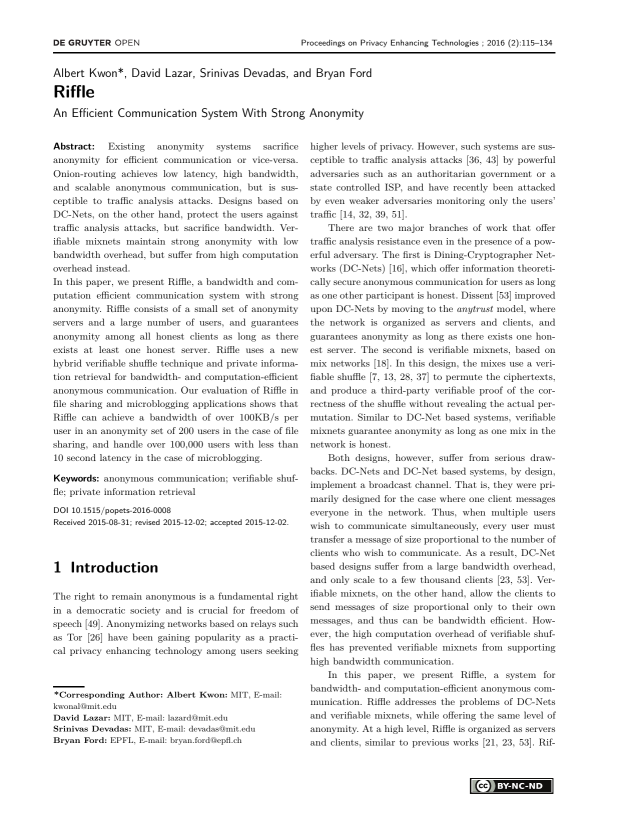Riffle
Authors: Albert Kwon (MIT), David Lazar (MIT), Srinivas Devadas (MIT), Bryan Ford (EPFL)
Volume: 2016
Issue: 2
Pages: 115–134
DOI: https://doi.org/10.1515/popets-2016-0008
Abstract: Existing anonymity systems sacrifice anonymity for efficient communication or vice-versa. Onion-routing achieves low latency, high bandwidth, and scalable anonymous communication, but is susceptible to traffic analysis attacks. Designs based on DC-Nets, on the other hand, protect the users against traffic analysis attacks, but sacrifice bandwidth. Verifiable mixnets maintain strong anonymity with low bandwidth overhead, but suffer from high computation overhead instead. In this paper, we present Riffle, a bandwidth and computation efficient communication system with strong anonymity. Riffle consists of a small set of anonymity servers and a large number of users, and guarantees anonymity among all honest clients as long as there exists at least one honest server. Riffle uses a new hybrid verifiable shuffle technique and private information retrieval for bandwidth- and computation-efficient anonymous communication. Our evaluation of Riffle in file sharing and microblogging applications shows that Riffle can achieve a bandwidth of over 100KB/s per user in an anonymity set of 200 users in the case of file sharing, and handle over 100,000 users with less than 10 second latency in the case of microblogging.
Keywords: anonymous communication; verifiable shuffle; private information retrieval
Copyright in PoPETs articles are held by their authors. This article is published under a Creative Commons Attribution-NonCommercial-NoDerivs 3.0 license.

